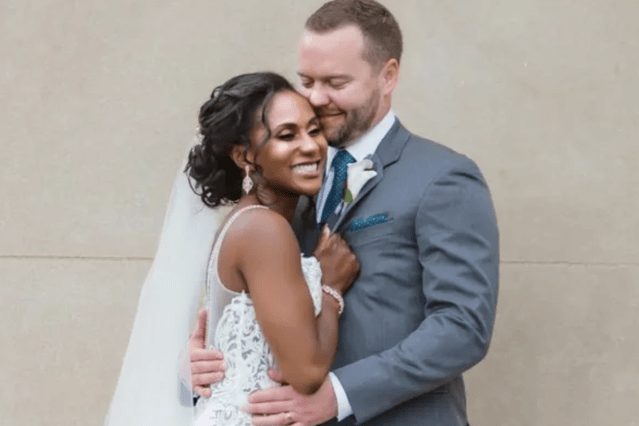
The cheerleaders for reigning Super Bowl champions the Kansas City Chiefs will have a noticeable addition to their uniforms this season. They will be wearing cuffs with the initials “KA” emblazoned on them in rhinestones.
The cuffs are an homage to former Chiefs cheerleader Krystal Anderson, who died in March due to complications from childbirth. Anderson, who was on the squad from 2006 to 2011 and 2013 to 2016, was just 40 years old, according to the Chiefs website. The organization also added Anderson’s initials to the sideline padding near the 10-yard line on the field where Anderson worked for the past seven years as a member of the squad’s alumni crew. “She left a mark on the world that we’ll never forget,” reads an Chiefs Cheer Instagram post announcing the squad’s plans to honor her memory.
“She was such a light in life and in relationships, and the girl loved her sparkle,” Stephanie Judah, the Chiefs’ director of entertainment teams, said in a statement. “There could never be too many rhinestones, beads or sequins. If she could wear the most sparkly dress ever, she would. You could never outdo her sparkle.”

A new Chiefs Cheer post added this week showed Anderson’s niece, a junior Chiefs cheerleader, wearing an embellished armband of her own while posing next to the sideline padding paying tribute to her late aunt.
Anderson died from cardiac arrest caused by sepsis, a life-threatening medical emergency that happens when the immune system has an extreme response to an infection, after she gave birth to a stillborn child. (A stillbirth is the loss of a baby after 20 weeks of pregnancy, according to the Centers for Disease Control and Prevention.) Anderson previously experienced a stillbirth in 2022 and had a miscarriage scare in December 2023.
Anderson’s husband, Clayton Anderson, tells Yahoo Life that the tribute is special to his family. “It means the world to me that the Chiefs organization and the cheerleaders are honoring my beautiful wife in such a meaningful and fitting way,” he says. “She loved being on the sidelines at Arrowhead [Stadium], and she was always sparkling while she was spreading joy and cheering the team on.”
Clayton calls his wife “an amazing woman who would cheer on everyone she knew and so many others that she didn’t.” He added, “I’m grateful I got to be her person.”
Clayton has also been outspoken about the Black maternal mortality crisis in the U.S., and how it may have influenced his wife’s care. He has expressed concern that his wife, who was Black, wasn’t able to see a maternal fetal medicine doctor or high-risk maternity specialist until she reached week 14 of her pregnancy, despite her history with pregnancy loss. “Expecting somebody who’s had a loss to go four weeks in between seeing their care providers … that’s the same protocol that’s done for a 23-year-old that’s very healthy,” he previously told ABC News. “It can’t be a one-size-fits-all.”
Here’s where things stand with the Black maternal mortality crisis, according to ob-gyns.


